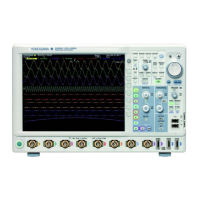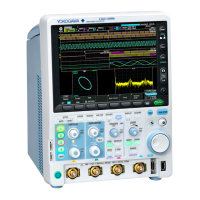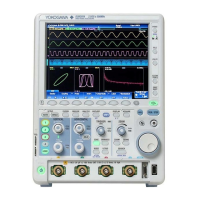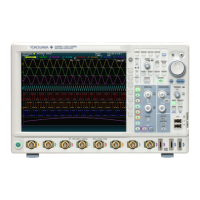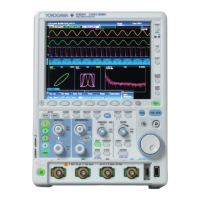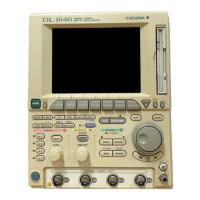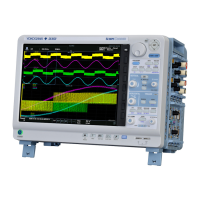2-19
IM DLM5058-03EN
Measurement Preparation
2
2.6 Connecting Logic Probes
WARNING
• When connecting a device under measurement to the instrument, be sure to turn off the
device.
• Do not apply voltage exceeding the maximum input voltage.
• To avoid electric shock, be sure to ground the instrument. Furthermore, connect the ground
of the probes or input connectors to the ground potential of the device under measurement.
The ground of each signal input terminal (input connector) of this instrument is common
with the instrument’s protective ground (see the block diagram in appendix 3). Do not apply
floating potential signals to the input connector ground. This is extremely dangerous as
doing so will cause a short to the ground potential.
CAUTION
• The maximum logic probe input voltage is ±40 V (DC + ACpeak) or 28 Vrms for the
701989 and ±42 V (DC + ACpeak) or 29 Vrms for the 701988. Applying a voltage greater
than either of these limits may damage the logic probe or the instrument. If the frequency
is high, damage may occur even if the voltage is below the values specified above. For
information about derating based on frequency, see the user's manual of the logic probe
that you are using.
• The eight input lines on the logic port have a common ground. In addition, the ground for
the instrument and the ground for the logic port is also a common ground. Do not apply
signals with different common voltages. Doing so may damage the instrument, connected
logic probes, and connected devices.
• For information about how to handle a logic probe, refer to the user's manual that came
with the logic probe.
French
AVERTISSEMENT
• Lors de la connexion à l’instrument d’un appareil faisant l’objet de la mesure, éteindre
impérativement l’appareil.
• Ne pas appliquer de tension supérieure à la tension d’entrée maximum.
• Pour éviter tout risque de choc électrique, l’instrument doit impérativement être relié à la
terre. Par ailleurs, connecter la terre des sondes ou les connecteurs d’entrée au potentiel
de terre de l’appareil faisant l’objet de la mesure.
La terre de chaque borne d’entrée du signal (connecteur d’entrée) de cet instrument est
commune à la terre de protection de l’instrument (voir le schéma fonctionnel à l’annexe 3).
Ne pas appliquer de signaux de potentiel flottant à la terre du connecteur d’entrée. Ceci est
extrêmement dangereux car le potentiel de terre risque d’être court-circuité.
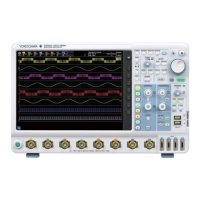
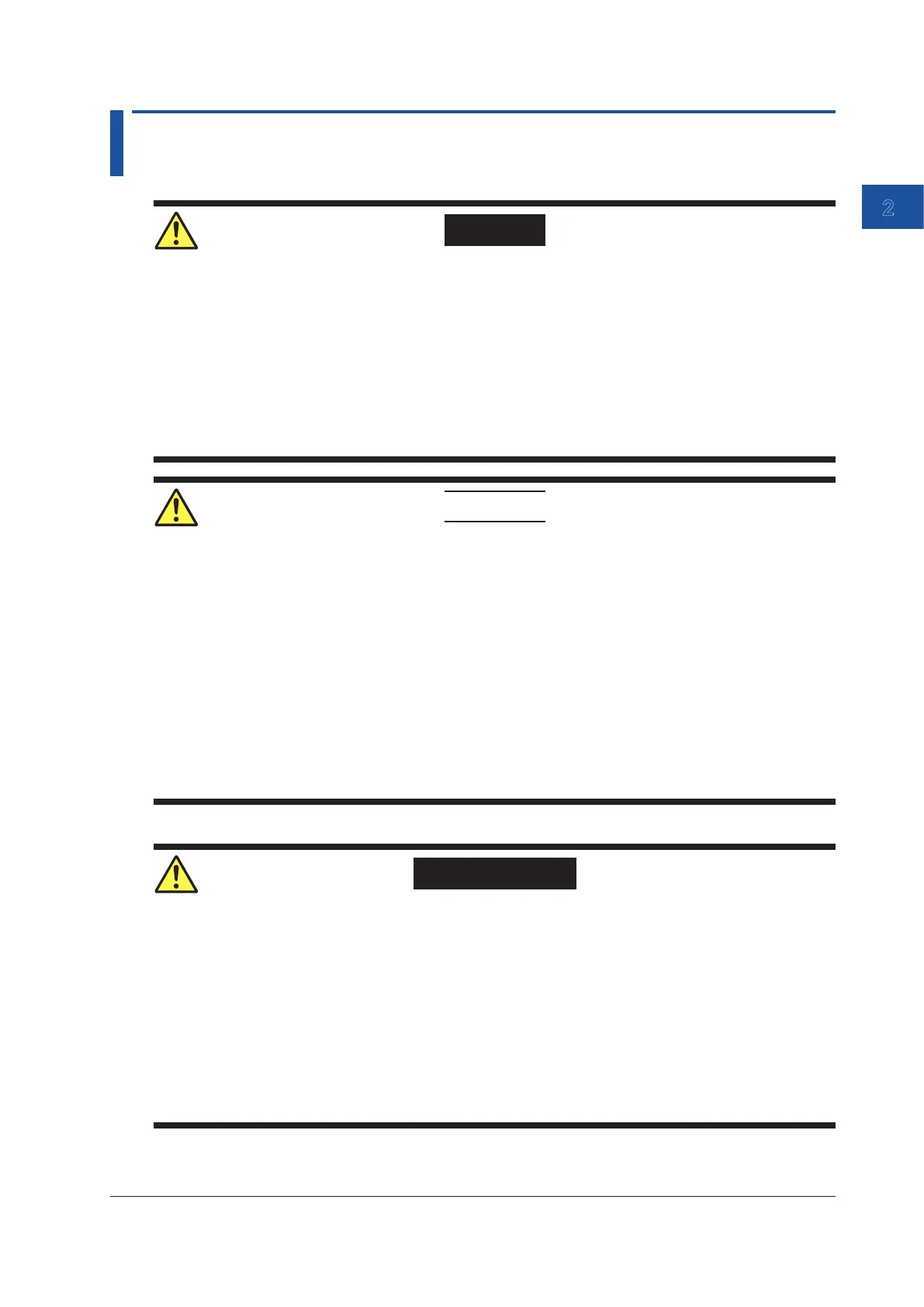